Traveler Interview: Local Nomads
We recently connected with Adam and Gabby online when they started up their new blog, Local Nomads. Like us, they are proponents of slow, cultural travel and simple living.
After college, they spent a year teaching English in South Korea then came back to the States and hit the road, pursuing seasonal work in adventurous destinations.
“We needed to find something different in our lives after graduating from college. Neither of us was ready to settle into a career, get married, have children, buy a house, retire, and die. Rather, we decided to take our lives into our own hands and start living out our dreams.” -Adam
We love how intentional these two are about their life path, so we’re excited they agreed to participate in our Intentional Travelers interview series.
What we learned from Adam and Gabby
What over-arching goals or values drive your life choices?
We are driven by a desire to soak up as much of the culture of each place we visit. Our travels are often inspired by what we stand to learn from each new place.
In South Korea we were able to learn about living in a culture that’s completely different from anything either of us had ever known. In Alaska we learned about living in the remote wilderness, as well as how to function in the presence of dangerous wildlife. In Colorado, Gabby has had the opportunity to learn to ski.
One of my favorite things about travel is that there is never any shortage of new things to learn about.
Where are some of the places you’ve been recently?
Upon returning to the US after a year of teaching English in South Korea, Gabby and I hit the road for a life of adventure. After a 5,000 mile cross country road trip, we spent 3 months living in Oregon’s beautiful Willamette Valley before moving to Skagway, Alaska for a summer of hiking and camping.
When the Alaskan days started getting shorter, we embarked on yet another road trip down the historic Highway 1 and through the Redwood forests. Eventually we made a left turn and headed east to the Rocky Mountains of Colorado, where we’ve been spending the winter skiing in fresh powder.
What are the pros and cons of teaching English abroad?
Teaching English abroad is a great way to make money and travel.
We chose to teach in South Korea because it has and easier process and fewer requirements than most countries. Also, the pay for English teachers in South Korea is one of the best compared to the cost of living.
An additional perk is that your housing and travel costs are almost always covered by the employer, so you have no rent or plane tickets to worry about! We loved our jobs, but our main focus was travel and learning, not teaching.
As private school teachers we had significantly less time off than public school teachers. However, our class sizes were much smaller (we had 7-15 students as opposed to 30-35 students in a public school classroom).
Unfortunately, teaching English requires you to be in a specific place at a specific time 5 days a week, so we mostly traveled on the weekends. Public school teachers have a month of vacation at once, most take extended trips around Asia during that time.

Tell us more about the seasonal jobs you’ve worked in the States. What do you do? Is it enough to support your daily/monthly needs?
We began working seasonally last Summer. While we were living in Oregon, we applied and were hired as servers at a busy tourist restaurant/brewery in Skagway, Alaska.
Skagway is a tiny town, four blocks wide by 22 blocks long. It has a winter population of 400 and a summer population of about 3,000. In May, the town floods with seasonal workers from EVERYWHERE. Then, once the cruise ships start coming, they don’t stop until late September. Up to five ships can come on any day, that’s a lot of thirsty tourists.
Cruise ship tourists spend stupid amounts of cash. Busy+Tourists+Tips=$$$.
The nice thing about a cruise ship town is that although it’s overrun with tourists by day, they all get back on their ship and leave by 9PM. At night, it’s just the locals. Gabby and I choose to live very simply, but EVERYONE makes enough money to support themselves.
In the fall we got our Medical Cards in California and found jobs trimming marijuana in Humboldt County for 9 days. The pay was enough to fund our entire month-long road trip.
This certainly isn’t a job for everyone, but we had a wonderful experience. We worked on a family farm way up in the mountains. We were surprised to find that they were a perfectly normal family, that just happened to grow a lot of medical marijuana.
They brought us fresh eggs in the mornings, and even made us chicken soup from their freshly slaughtered chicken. It wasn’t the lap of luxury, but it was a highly educational and perspective-altering experience.
This winter, we are working for ski resorts in the Rocky Mountains of Colorado. Colorado’s ski resorts are very busy with tourists during the winter. Busy+Tourists+Tips=$$$!
Working in the hotel restaurant gets me the benefits of working in a hotel (cheap hotel stays), as well as the benefits of working for a ski resort (free ski pass). Making money and supporting yourself seasonally can be easy if you put yourself in the right places.
Do you have any tips for making a cross-country road trip more affordable?
Make sure your car is in good condition. A break down is going to cost you money and time.
Get a cooler. Stop at the grocery store along the way instead of eating in restaurants. We ate a lot of PB&J and veggies on the road.
Also, we have an electric hot pot that we bring on the road with us that boils water in about 3 minutes. It’s great for making simple dinners in a hotel room or boiling water for oatmeal, coffee, or yerba mate (we travel with a french press). We’ve even used it as a humidifier in particularly dry hotel rooms.
If you’re traveling when it’s warm enough, camping out is almost always your cheapest option. Although tents can be expensive, I recommend getting a good one. It will pay for itself many times over on the road.
With a small investment, you can gear up with a sleeping bag, a sleeping pad, a lantern, and a tent thereby freeing you from hotel rooms.
Check out other traveler stories on our Intentional Travelers interview page


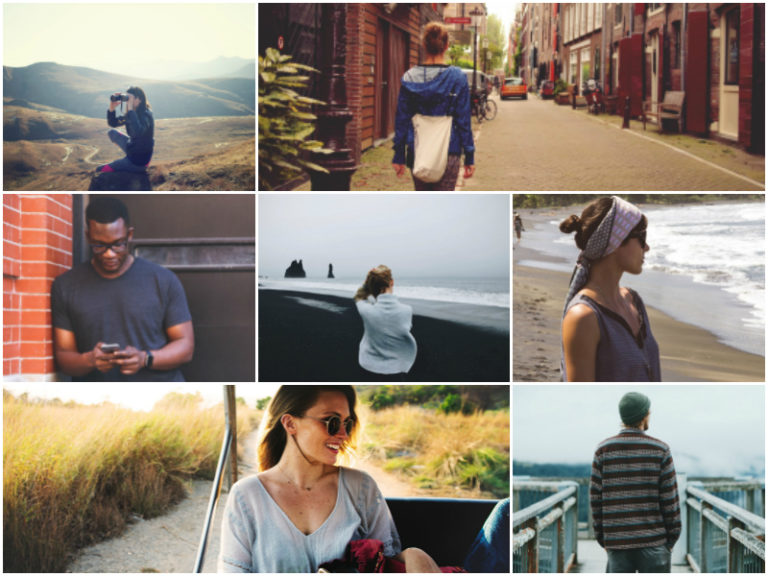
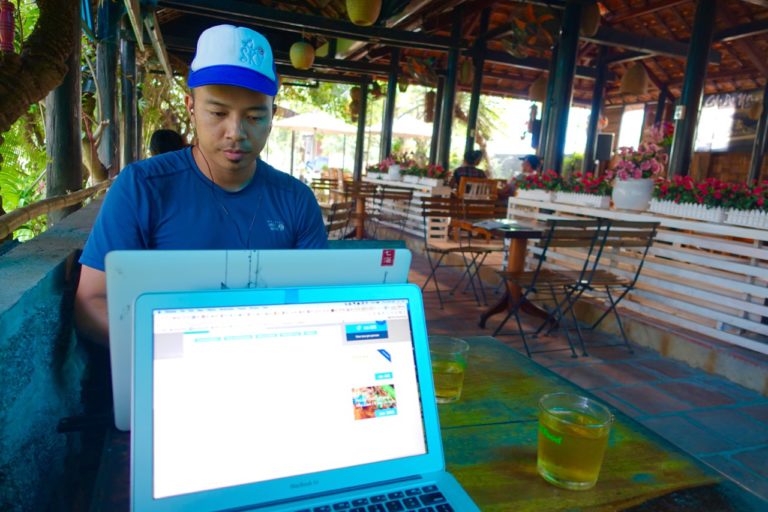
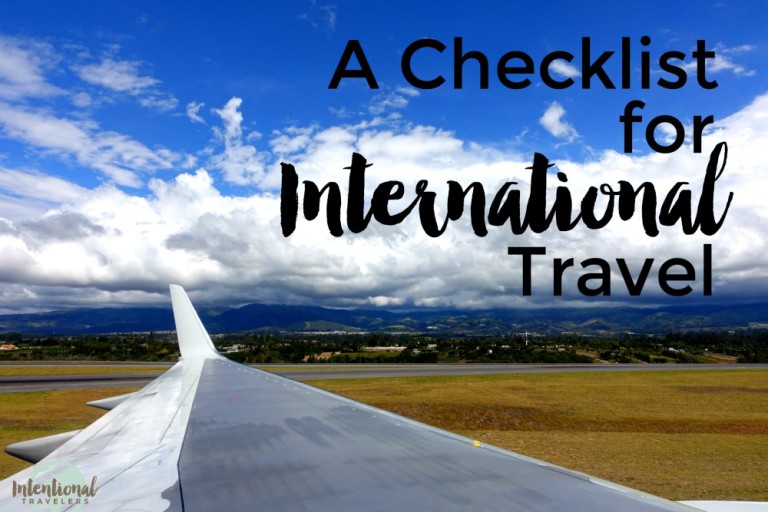
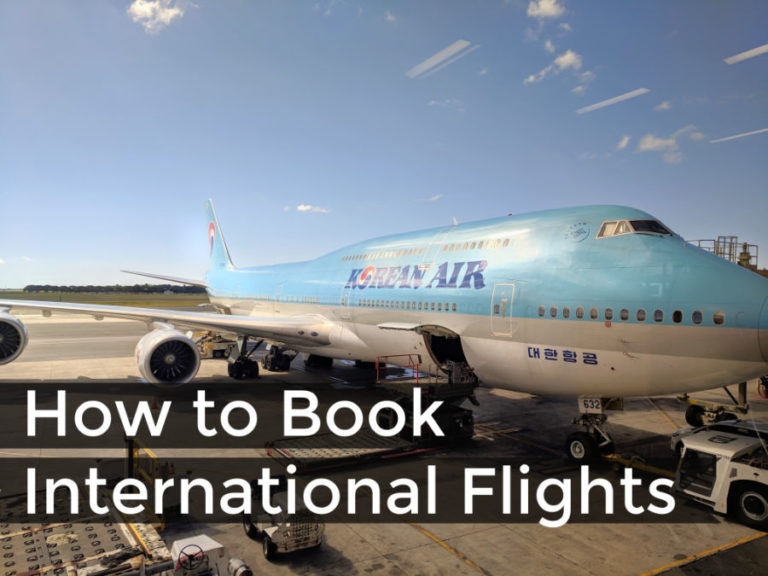
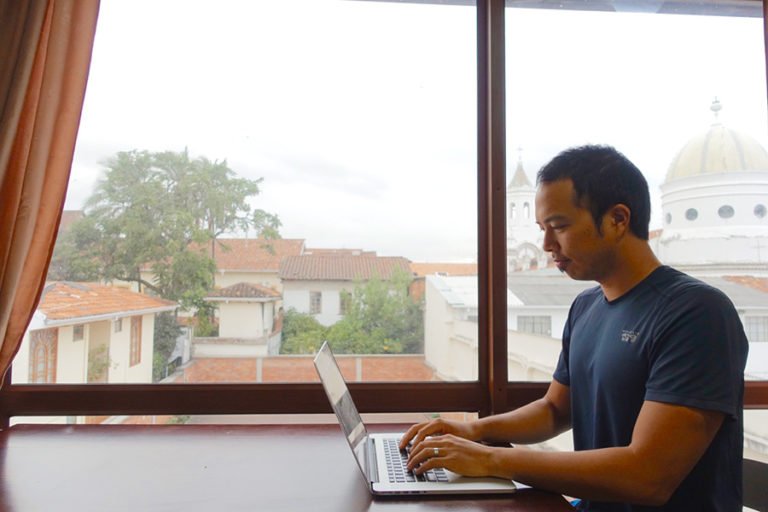

Reblogged this on Local Nomads and commented:
We just got featured on Intentional Travelers!